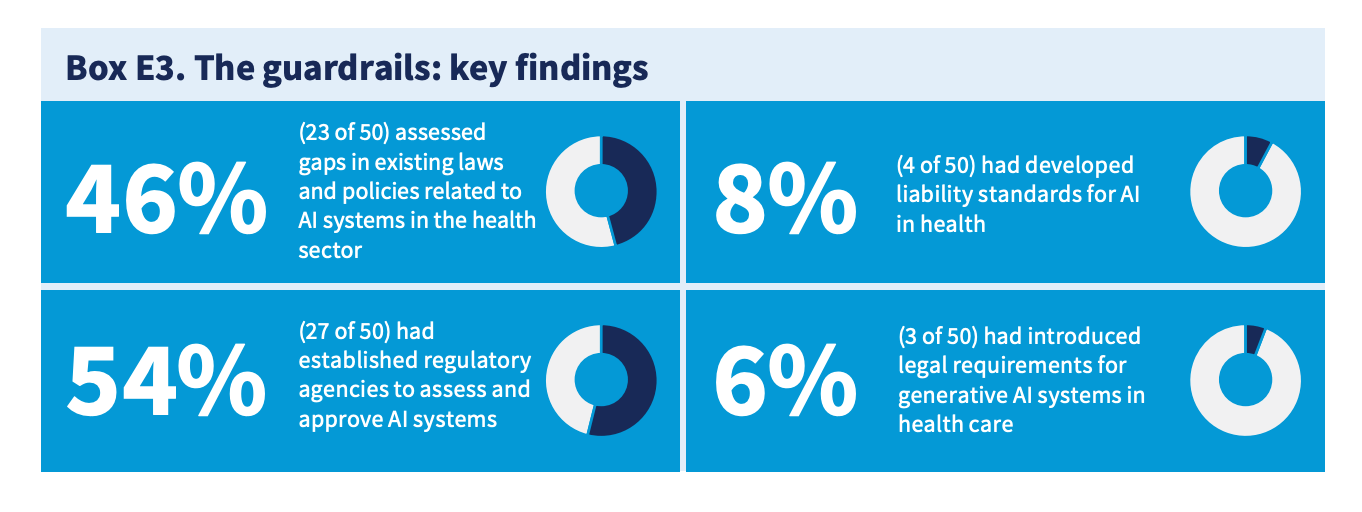Four For Friday | Nov 21, 2025
LF197 | Europe's paralyzing precautionary principle, Apple's new 3D printing innovations, WHO on health AI across Europe, asset managers embrace systems risk + SustainChain.
Welcome to this week’s Four For Friday - nuggets of interesting things I’ve picked up this week, plus my favorite AI tool du jour.
1. How Europe outsourced its future to fear
I couldn’t really do better than the title of this piece in Exponential View - punchy and hard hitting. I was in Brussels from 1995-2000 - swimming in the European waters as a ‘stagiaire’ (aka intern, but it sounds better) in the trade Directorate, and loved my time there, and remember learning about the precautionary principle and being impressed with policy as a tool for good. At the time Europe and the US were economically similar and - as far as I was concerned - had the upper hand in most things. Times have changed, and this seems like a bellweather.
Europe’s precautionary principle sounded fine to me, but in effect it’s just paralysis with paperwork. Germany shut down nuclear after Fukushima (wrong reactor, different continent, involved a tsunami) and replaced clean energy with coal. A Swedish barnacle-preventing ship paint has waited sixteen years for EU approval while being used everywhere else. The 2025 Nobel winners showed growth needs societies that welcome tech change. Europe’s response? Better safe than sorry. Which would be fine if standing still wasn’t likely to be the most dangerous move of all.
The So What? When precaution becomes doctrine, the status quo becomes stasis, and people die.
2. That Apple Watch you wear? 3D Printed
On my recent trip to the US I picked up the latest Apple Watch, and it has not disappointed; becoming a part of my identify and functionality - I feel naked without it. What I didn’t know is that they’re 3D printed.
Apple Watch Ultra 3 cases are now 3D-printed with 100% recycled aerospace-grade titanium powder. Apple shifted from subtractive (carving metal blocks) to additive manufacturing (building layer by layer), and as a result cut raw material use by 50% - saving over 400 metric tons of titanium in 2025.
Each case requires 900+ layers and 20 hours to print. The healthy price tag now makes a little more sense.
So what? Circular economy can work at scale: Apple re-engineered manufacturing to be efficient and sustainable without compromising quality or design.
3. WHO report on AI in European healthcare
A WHO report surveying 50 European countries found that while AI is reshaping healthcare—from diagnostics to personalized medicine—86% cite legal uncertainty as the top barrier to adoption, and less than 10% have liability standards for when AI makes mistakes. In a continent that loves regulating AI, this seems surprising to me.
Only four European countries have dedicated national AI strategies. The author notes, “Without clear strategies, data privacy, legal guardrails and investment in AI literacy, we risk deepening inequities rather than reducing them.”
The So What? Regulating AI is hard, and the place to do it has to be at the application layer, especially in healthcare. Other countries will face this soon enough - Europe could lead the world with smart, collaborative, people-centric AI guidance.
4. Systems thinking meets asset managers
This piece in New Private Markets (reg reqd) notes that giant pension funds can’t diversify away climate risk when they own everything, so they might as well think systemically.
Universal asset owners with global portfolios are realising - you can’t hedge your way out when the entire planet is your exposure. Real estate, public equities, agriculture all need decarbonised steel, cement, shipping inputs to transition. So big pensions are tilting allocations toward climate solutions, partly for alpha, partly because making carbon solutions cost-competitive helps their existing holdings. Self-interest meeting systems change. Turns out enlightened self-preservation beats altruism every time.
The So What? When you’re too big to diversify away from planetary risk, systems thinking stops being morals and philosophy and starts being portfolio management.
Bonus AI Tip of the Week: Sustain Chain
A slightly different AI tip of the week - SustainChain operates at the macro, world-fixing level. It’s an AI-powered match-maker supply chain platform connecting organizations looking to accelerate progress on the UN’s Sustainable Development Goals (SDGs). It connects businesses, scientists, and investors to collaborate on initiatives, addressing the fragmentation of global sustainability efforts. Seems at some level it’s looking to be a green-fingered invisible hand - an alternative to raw capitalism - allocating expertise, knowledge and funding where it can do the most good, not just make the most profit. I hope the pension funds mentioned above are taking note (thanks @Aaron for the tip!)
That’s all for now - happy weekend everyone.
- Stephen



